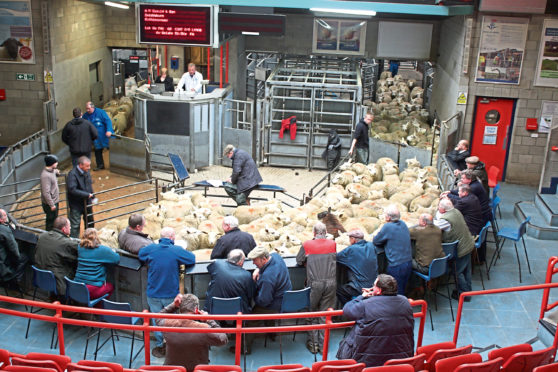Scotland’s livestock auctioneers have launched a campaign to win back business after losing around 20% of prime sheep trade to direct deals between abattoir buyers and farmers in the last year.
In a fierce attack on supermarket buying behaviour, the Institute of Auctioneers and Appraisers in Scotland (IAAS) has alleged that the “insidious growth in the use of closed-door deals puts at risk the transparency and honesty that can only be guaranteed in the livestock auction ring”.
IAAS president Scott Donaldson said major buyers who supply the supermarkets have withdrawn from the live sheep markets in the last year, and are now sourcing directly from farmers.
He claimed: “Most markets in Scotland have seen a downturn of around 20% in sheep numbers in a year.
“That is partly because there are fewer lambs after last year’s difficult lambing, but largely as a result of buyers getting their fingers burned because they had to pay much more than they expected for hoggs at the marts last spring.
“This year I can’t think of any major lamb processors who are being represented in the markets.”
Mr Donaldson said there had been a series of complaints from farmers who found themselves short-changed by direct contracts, “particularly when major buyers have aimed to avoid short-term market fluctuations”.
“We want to work with supermarkets as important and valued stakeholders but now is the time for this evasion on price to end,” he added. “You would almost think that the UK’s major retailers were seeking to deliberately avoid fair and transparent pricing in our food chain.”
Mr Donaldson went on to warn that if the big, heavy-hitting processors were not around the sheep rings, farmers would lose out because it would lead to lack of competition.
“It wouldn’t just be the marts that would suffer, it would be the thin end of the wedge for farmers too,” he said. “If there is less throughput, marts will become less viable, there will be fewer of them and people will have to travel further.”
Meat processors and supermarkets were contacted, but no one was available for comment.
